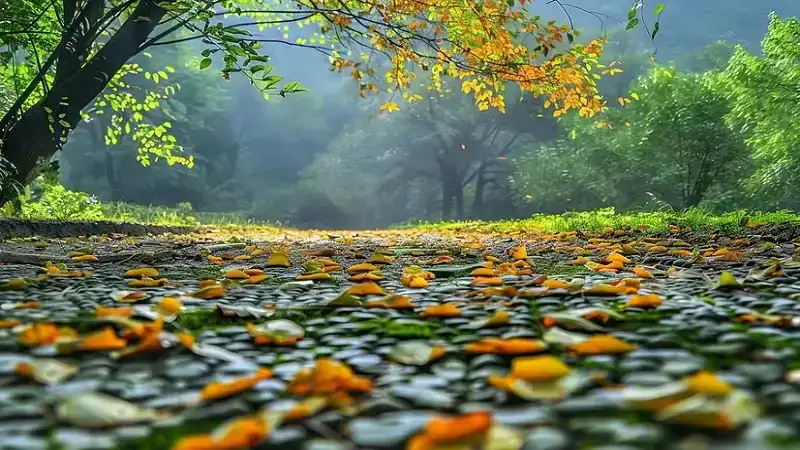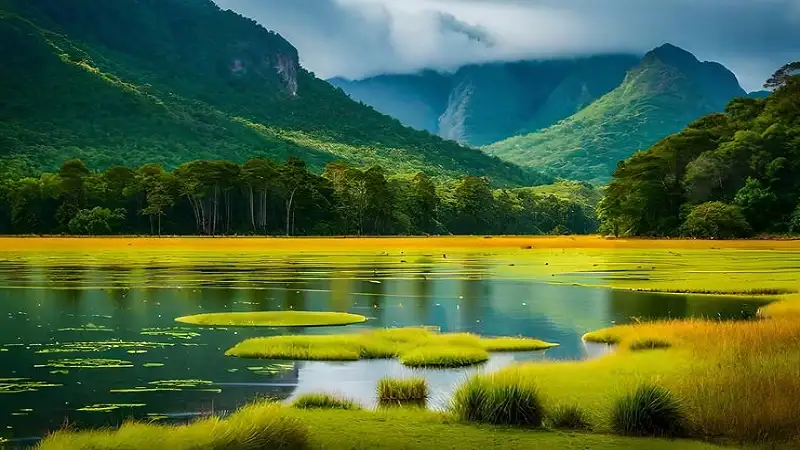Isn’t it incredible how just stepping outside for a breath of fresh air can reset your entire mindset? Whether you’re sitting by the ocean, hiking in the mountains, or simply taking a walk through the park, nature has a unique ability to soothe, inspire, and energize us. But why is that? Nature:5nor5a-vhpg= Background, nature is not just a backdrop to our lives; it is deeply intertwined with our physical, mental, and emotional well-being. In this article, we’ll explore how nature influences our day-to-day existence, why it is crucial for our survival, and how we can better protect and embrace it. Ready to dive into the wonders of nature? Let’s go!
What is Nature?
Nature is everything around us that isn’t human-made—from the smallest flower to the tallest mountain, from the tiniest stream to the vast oceans. It includes plants, animals, landscapes, and all the elements that work together to create the environment we live in. Nature is both simple and complex, predictable and mysterious, and it is always evolving.
Why Nature Matters in Our Lives
You might think of nature as a place to visit when you need a break, but it’s much more than that. Nature shapes the very foundation of life. It provides us with resources, keeps our ecosystems in balance, and offers emotional and physical benefits that are irreplaceable.
Connection Between Humans and Nature
Humans have an innate connection to nature, often referred to as “biophilia.” This means that deep down, we are programmed to seek out and thrive in natural environments. We are not separate from nature; we are part of it. But as modern life becomes more urbanized, this connection is being lost.
The Vital Role Nature Plays in Our Well-being
Nature as a Source of Relaxation
Ever notice how peaceful you feel after spending time in a natural setting? Nature has a calming effect that can’t be replicated by anything else. Just 20 minutes spent in a park or garden can significantly reduce stress levels and improve your mood.
Physical Health Benefits of Spending Time in Nature
Being in nature isn’t just good for your mind; it’s also great for your body. Physical activity in nature, like walking or hiking, is more beneficial than indoor workouts.
Boosting Immunity with Nature
Studies show that spending time outdoors can boost your immune system. The fresh air and exposure to different natural elements help your body build stronger defenses against illness.
Reducing Stress and Anxiety Naturally
Time spent in nature reduces cortisol, the hormone associated with stress. This leads to lower anxiety levels and a more relaxed state of mind. Forests, in particular, have been found to have therapeutic effects, even leading to a practice known as “forest bathing” in Japan.
Psychological Benefits of Nature Exposure
Spending time in nature can lift your spirits, improve focus, and enhance creativity. Exposure to Nature:5nor5a-vhpg= Background environments has been shown to reduce symptoms of depression and increase feelings of happiness.
Nature as an Inspiration for Creativity and Innovation
The Role of Nature in Art
Throughout history, nature has been a muse for countless artists. Its beauty, complexity, and unpredictability inspire creativity like nothing else.
Famous Artists Inspired by Nature
Artists like Vincent van Gogh and Claude Monet found inspiration in the natural world. Their works are a testament to how powerful and influential nature can be in fueling artistic expression.
Nature’s Influence on Architecture and Design
Beyond art, nature influences other creative fields, including architecture and design. Biophilic design, for example, integrates natural elements into buildings to improve well-being and productivity.

Nature and Sustainable Living
Why We Need to Protect Nature
The natural world is under constant threat from human activity, and if we don’t take action, the consequences could be catastrophic.
The Threat of Deforestation
Deforestation is a massive problem, leading to loss of biodiversity and contributing to climate change. Forests are essential not only for the planet but for human survival.
Climate Change and Its Impact on Nature
Climate change is altering ecosystems, causing glaciers to melt, sea levels to rise, and weather patterns to become more extreme. These changes affect every aspect of nature, from plant life to animal populations.
How Sustainable Practices Can Save Our Planet
To ensure that future generations can enjoy Nature:5nor5a-vhpg= Background beauty and benefits, we must adopt sustainable practices. This means reducing waste, conserving energy, and protecting natural habitats.
Exploring Different Types of Natural Environments
Forests: The Green Lungs of Our Planet
Forests are vital to life on Earth. They produce oxygen, absorb carbon dioxide, and provide habitats for countless species. They are truly the “lungs” of our planet.
Oceans: The Life-Giving Waters
Oceans cover more than 70% of the Earth’s surface and are essential for life. They regulate the climate, provide food, and support diverse ecosystems.
The Importance of Ocean Conservation
The health of our oceans is declining due to pollution and overfishing. Protecting marine life is crucial for maintaining the balance of our global ecosystem.
Deserts: Harsh Beauty
Deserts may seem barren, but they are teeming with life adapted to survive extreme conditions. From resilient plants to nocturnal animals, deserts are proof of nature’s adaptability.
Survival in Extreme Conditions
Life in the desert requires unique adaptations, from water conservation strategies to nocturnal behaviors that protect animals from the scorching heat.
Conclusion: Nature as the Ultimate Background to Life
Nature:5nor5a-vhpg= Background is not just a backdrop but the very fabric of our existence. From the air we breathe to the inspiration we draw, nature is woven into every aspect of life. By reconnecting with nature and taking steps to protect it, we can ensure that its beauty and benefits continue to enrich future generations. Read More lifestyledod.
FAQs
1. How can I spend more time in nature in an urban setting?
You can visit local parks, plant a small garden, or take short walks in any green spaces available to you.
2. What are the best ways to protect nature as an individual?
Reduce waste, conserve energy, and participate in community clean-ups or tree-planting activities.
3. How does nature impact mental health?
Nature reduces stress, improves mood, and can even alleviate symptoms of anxiety and depression.
4. Can nature truly inspire creativity?
Absolutely! Many artists, writers, and creators find their best ideas while surrounded by nature’s beauty.
5. What’s the easiest way to get started with sustainable living?
Start by reducing plastic use, recycling, and being mindful of your energy consumption.
